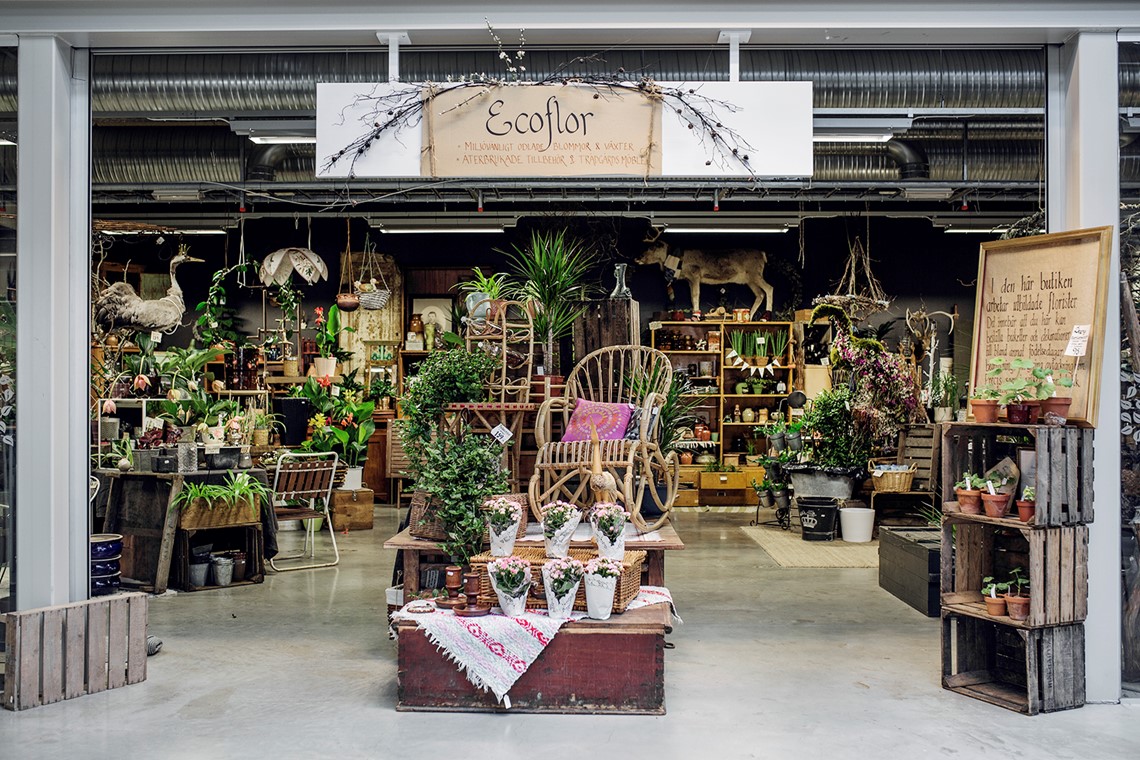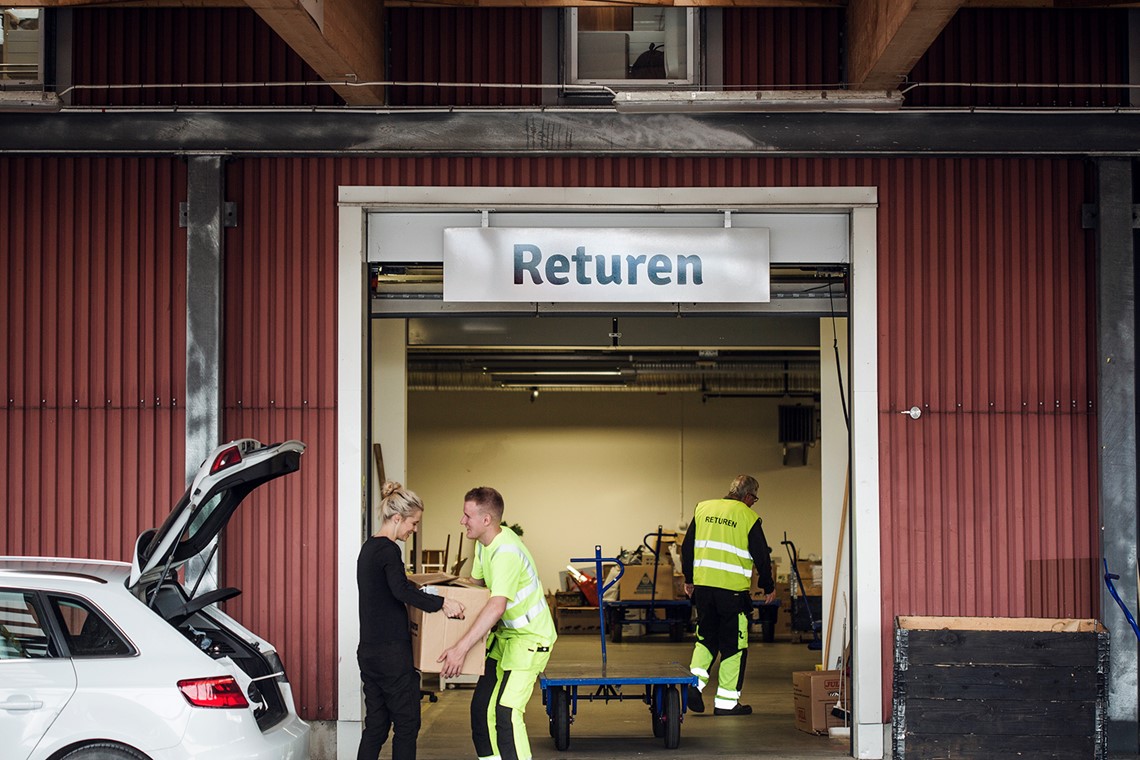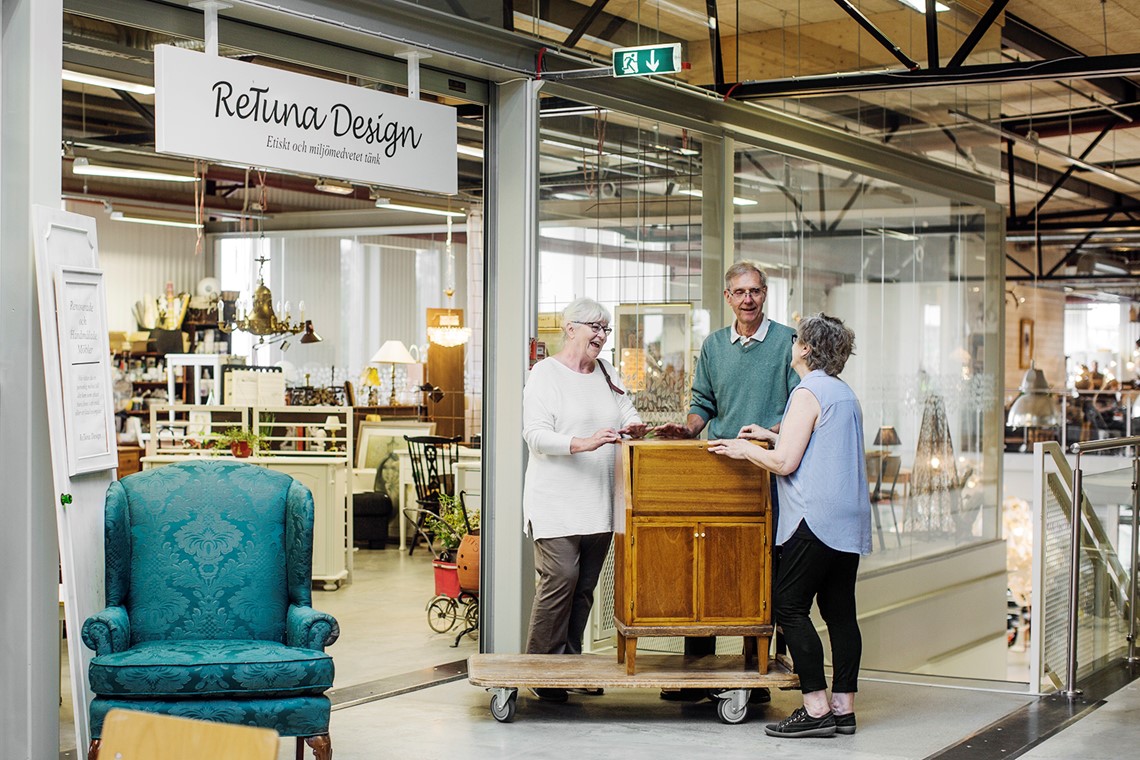ReTuna Återbruksgalleria is the world’s first recycling mall, marking the start of a low-carbon shopping revolution. Old items are given new life through repair and upcycling. Everything sold is either recycled or reused, or has been produced organically or sustainably.
The mall opened its doors in August 2015 and is located right next to the city’s recycling centre. This makes it easier for visitors to drop off unwanted and reusable items at the mall’s depot or ‘Returen’. Depot staff sort what is usable and what isn’t, and then distribute the retained items to the mall’s shops. Shop staff then carry out further sorting, choosing what they want to repair, fix, convert, improve , reinvent, and ultimately sell. In this way, the materials are given new life.
The business concept is working: in 2018, ReTuna Återbruksgalleria generated SEK 11.7 million in sales from recycled products. And the mall has created over 50 new jobs.
ReTuna also runs a year-long education programme on the premises called ‘Recycle Design – Återbruk’, teaching students about design and how to upcycle commonly donated objects. It also organises events, workshops, lectures, theme days and more, all focusing on sustainability. There are also conference rooms where guests can hold low-carbon meetings.
The mall is located about one hour from Stockholm by car or train, and is easy to reach if you are staying in the Swedish capital. Visit the world’s first recycling mall and take a guided tour to see what happens behind the scenes.
Related Images


